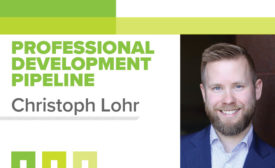Home » Keywords: » strategy
Items Tagged with 'strategy'
ARTICLES
Be open to learning new things in your personal and professional lives.
Read More
Christoph Lohr: What is your interview process?
Part Three of the Sourcing Plan Series.
March 4, 2021
Christoph Lohr: What is your sourcing plan?
Part Two of the Sourcing Plan series.
February 10, 2021
Christoph Lohr: How code or specialty plumbing certification sets you apart as a contractor or engineer
Differentiate yourself from your competitors.
December 30, 2020
Christoph Lohr: Strategy for engineering firms
Strategic planning is important for businesses and individuals.
November 6, 2020
Christoph Lohr: What is strategy?
Businesses need cohesive strategy to become successful.
September 8, 2020
Get our new eMagazine delivered to your inbox every month.
Stay in the know on the latest plumbing, piping, hydronic and fire protection trends.
SUBSCRIBE TODAYCopyright ©2024. All Rights Reserved BNP Media.
Design, CMS, Hosting & Web Development :: ePublishing

